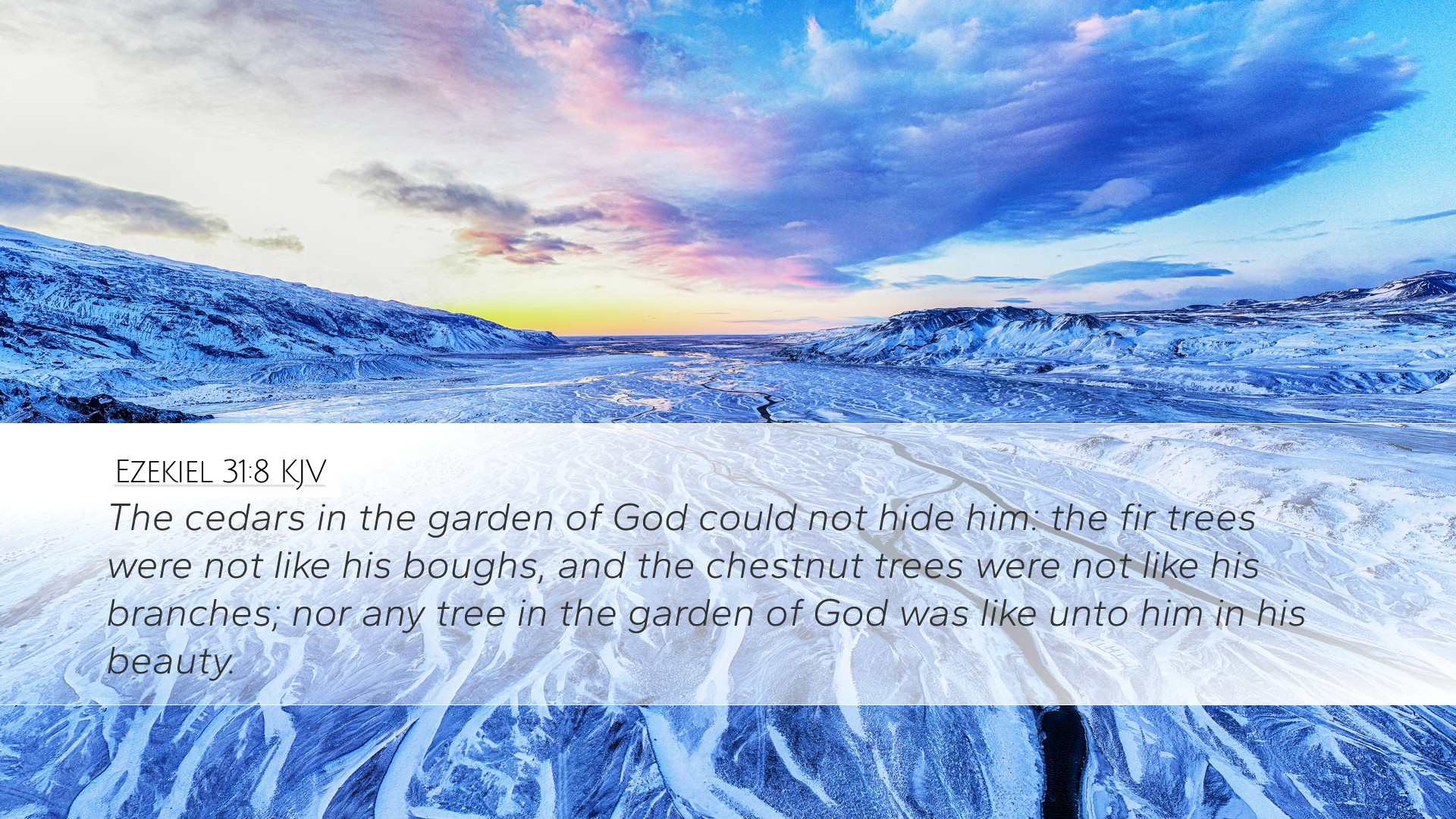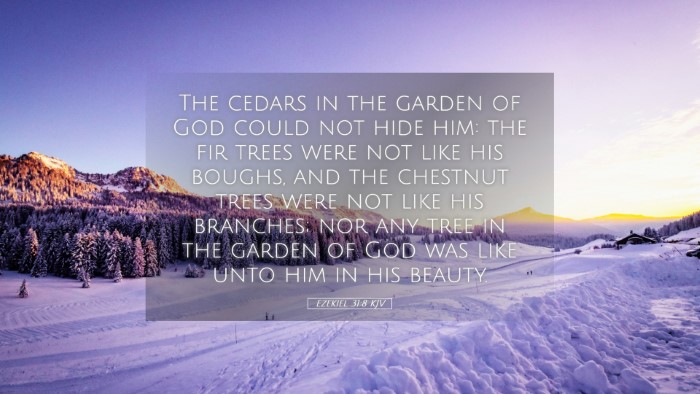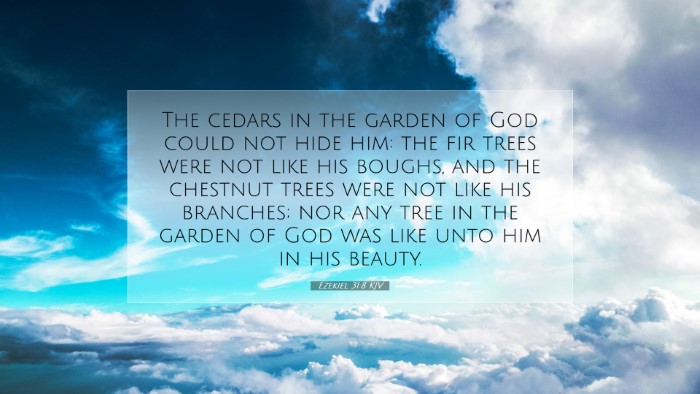Ezekiel 31:8 Commentary
Ezekiel 31:8 (ESV): "The cedars in the garden of God could not rival it, nor the fir trees equal it; the plane trees were as nothing compared to its branches; no tree in the garden of God was like it in beauty."
Introduction
The verse Ezekiel 31:8 provides a striking image of the grandeur and beauty of a powerful tree, often interpreted as a metaphor for prideful nations or rulers. This commentary draws upon the insights of Matthew Henry, Albert Barnes, and Adam Clarke to elucidate the theological, historical, and moral implications of this passage.
Contextual Overview
Ezekiel's prophecy comes during a tumultuous time for Israel, as the nation faces impending judgment and exile. The chapter serves as an allegory of the Assyrian empire, represented as a majestic tree, emphasizing its former glory and subsequent downfall.
Historical Context
In ancient Near Eastern literature, trees often symbolize nations and empires. Ezekiel draws from this rich symbolism to illustrate how the Assyrian empire, represented by a magnificent cedar, once towered over other nations, much like the trees of the garden of God.
Commentary on Specific Elements
The Cedars in the Garden of God
Matthew Henry notes that "the cedars" symbolize strength and majesty, often associated with God's own garden, which suggests that even the most powerful entities are ultimately under God's sovereignty. The reference to the Garden of God indicates a place of divine order and beauty, contrasting the chaos of earthly kingdoms.
Comparison with Other Trees
Albert Barnes emphasizes the incomparable beauty of the tree, noting that even the finest trees of Lebanon were unable to match its splendor. This serves to highlight the pride of Assyria, illustrating how the empire exalted itself to heights unmatched by others, yet was established by God for a time.
Branching Out
Adam Clarke points out that "the branches" of the tree stretch out symbolically representing the spread of influence and dominion that Assyria had over surrounding nations. The beauty of this expansion, however, is juxtaposed with the impending judgment that such pride and elevation would ultimately bring.
Theological Implications
This verse serves as a cautionary tale within the broader narrative of Scripture about the dangers of pride and reliance on human strength. It reinforces the idea that while nations and leaders may flourish, their end is ordained by divine justice.
- Pride and Downfall: The imagery speaks profoundly to the issue of pride—what is exalted by man may be humbled by God.
- Beauty vs. Transience: The focus on beauty serves as a reminder that the splendor of earthly power is fleeting.
- God's Sovereignty: It showcases God’s ultimate lordship over history and kingdoms, asserting that no matter how mighty a nation may appear, it remains subject to divine will.
Practical Applications
For pastors, theologians, and Bible scholars, this passage encourages reflection on the nature of divine justice and human hubris.
- Preaching Insights: Seek to communicate the eternal truths of God's word in contrast to transient earthly kingdoms.
- Teaching Moments: Use the imagery to discuss themes of humility, stewardship, and dependence on God rather than on human strength.
- Personal Reflection: Encourage personal introspection to identify areas where pride may overshadow reliance on God's plan and purposes.
Conclusion
Ezekiel 31:8 serves not only as a historical description of a powerful empire but also as a timeless lesson on the nature of pride, beauty, and mortality. This passage speaks volumes to all believers about the importance of humility before God, inviting us to recognize the transient nature of earthly splendor in light of divine truth and sovereignty.


